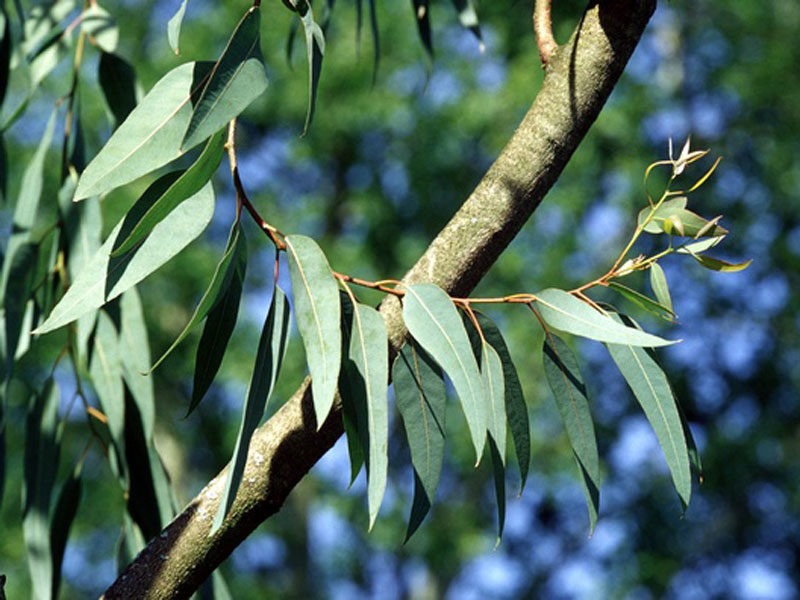Eucalyptus (Eucalyptus globulus)

The eucalyptus tree is a myrtle plant that can reach up to 80 m in height. It occurs in several hundred different species. The blue eucalyptus is used as a medicinal herb. It originated in Tasmania and the south of Australia and only came to us with the voyages of James Cook at the end of the 18th century. Today, eucalyptus is cultivated worldwide in warm climates.
The most valuable substances of the eucalyptus are found in the aromatic, blue-green leaves. These contain 1.5 to 3.5% essential oil with the main active ingredient cineole (70-80%). In addition, eucalyptus leaves contain tannins and flavonoids. Preparations of eucalyptus oil are used externally for respiratory diseases and rheumatic complaints, internally and by inhalation for colds as well as for infections of the urinary and genital organs.
In inflammatory diseases of the respiratory tract and bronchitis, the essential oil has a stimulating effect on the ciliated epithelium lining the respiratory tract, thus facilitating the expectoration of mucus. In addition, eucalyptus oil has an antispasmodic and strong antibacterial effect, which is why it is suitable for vaporising and inhaling during colds. Externally, the essential oil of the eucalyptus tree is valued for its strong circulation-promoting, anti-inflammatory and locally pain-relieving effects. A cooling effect is perceived on the skin.
In asthma and the lung disease COPD, eucalyptus oil can be used under medical supervision as an accompanying therapy and provide the patient with relief. Eucalyptus oil is also said to have a blood pressure-lowering and diuretic effect. Due to its circulation-promoting, antibacterial and antifugal properties, eucalyptus oil is also suitable as a component of irrigation solutions for cleansing the uterus, e.g. in the case of postpartum behaviour and in the case of inflammations for the regeneration of the uterine mucosa. Traditional medicine also says that this essential oil has a mild deworming effect.